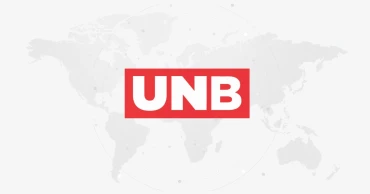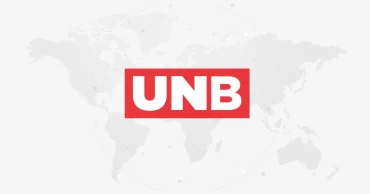tank
After tank pledges, Ukraine seeks Western fighter jets
Ukraine is pushing its Western allies to provide it with fighter jets, a week after winning pledges of sophisticated modern tanks to help it beat back Russia’s invasion force after almost a year of fighting.
Ukrainian Defense Minister Oleksii Reznikov was due in Paris on Tuesday where discussions about the possible delivery of fighter jets to Ukraine was expected to be on the agenda.
After months of haggling, Ukrainian authorities last week persuaded Western allies to send the tanks. That decision came despite the hesitation and caution of some NATO members, including the United States and Germany.
There was no indication that a decision on warplanes to Ukraine might come any time soon and no sign that Western countries have changed their earlier stance on the issue. Some Western leaders have expressed concern that the move could escalate the nearly year-long conflict and draw them deeper into the war.
The U.K. government, which has been one of Kyiv’s staunchest diplomatic supporters and military suppliers, said that sending its fighter jets is “not practical.”
Prime Minister Rishi Sunak’s spokesman, Max Blain, said “the U.K.’s Typhoon and F-35 fighter jets are extremely sophisticated and take months to learn how to fly.”
“Given that, we believe it is not practical to send those jets into Ukraine,” he said Tuesday, though he didn't say that the U.K. was opposed to other countries sending planes.
Asked by a reporter Monday if his administration was considering sending Ukraine F-16 fighter jets to Ukraine, U.S. President Joe Biden responded “no.”
Kyiv officials have repeatedly urged allies to send jets, saying they are essential to challenge Russia’s air superiority and to ensure the success of future counteroffensives that could be spearheaded by tanks recently promised by Western countries.
Ukraine's allies also have ruled out providing Kyiv with long-range missiles able to hit Russian territory, signaling a similarly cautious stance on warplanes.
Asked Tuesday about the supplies of Western weapons to Ukraine, Russian Foreign Minister Sergey Lavrov repeated the Kremlin’s view that “NATO long has been directly involved into a hybrid war against Russia.”
He added after the talks in Moscow with Egyptian Foreign Minister Sameh Shoukry that the Russian military will “take all the necessary measures to derail the fulfillment of Western plans.”
He said that Shoukry conveyed a message from U.S. Secretary of State Antony Blinken about Ukraine, which repeated the previous calls from Washington for Russia to withdraw.
Lavrov said “Russia is ready to hear any serious — I want to underline this word — proposal aimed at comprehensive settlement of the current situation.”
Both Ukraine and Russia are believed to be building up their arsenals for an expected offensive in coming months. The war has been largely deadlocked on the battlefield during the winter.
As in previous debates about how to help Ukraine, Poland is a leading advocate in the European Union for providing military aid. Poland, Slovakia and the Baltic countries on NATO’s eastern flank feel especially threatened by Russia.
Asked about Lithuania’s call for fighter jets and long-range missiles for Ukraine, Kremlin spokesman Dmitry Peskov said the comments “reflected an aggressive approach taken by the Baltic nations and Poland, who are ready to do everything to provoke further escalation without thinking about consequences.”
“It’s very sad that the leaders of big European countries that drive the European agenda don’t fulfill a balancing role to offset such extremist inclinations,” Peskov said in a conference call with reporters.
French President Emmanuel Macron said Monday that France doesn’t exclude sending fighter jets to Ukraine, but he laid out multiple conditions before such a significant step is taken.
The conditions, he said, include not leading to an escalation of tensions or using the aircraft “to touch Russian soil,” and not resulting in weakening “the capacities of the French army."
Read more: NATO vows to aid Ukraine ‘for as long as it takes’
He also said Ukraine must also formally request the planes, something that could happen when Reznikov sits down for talks in Paris.
German Chancellor Olaf Scholz appeared to balk at the prospect of providing fighter jets, suggesting Sunday that the reason for the entire discussion might be down to “domestic political motives” in some countries.
Dutch Prime Minister Mark Rutte said Monday there are “no taboos” in efforts to help Ukraine. But he added that sending jets “would be a very big next step.”
NATO-member Croatia’s president, meanwhile, criticized Western nations for supplying Ukraine with heavy tanks and other weapons. President Zoran Milanovic argued that those arms deliveries will only prolong the war.
Earlier in the conflict, discussions focused on the possibility of providing Kyiv with Soviet-made MiG-29 fighter jets that Ukrainian pilots are familiar with. In March, the Pentagon rejected Poland’s proposal to transfer its MiG-29 fighter jets to Kyiv through a U.S. base in Germany, citing a high risk of triggering a Russia-NATO escalation.
Western warplanes would offer Ukraine a major boost, but countering Russia’s massive air force would still be a major challenge.
Ukraine inherited a significant fleet of Soviet-made warplanes, including Su-27 and MiG-29 fighter jets and Su-25 ground attack aircraft.
Switching to Western aircraft would require Ukrainian crews to undergo long training and would also raise logistical challenges linked to their maintenance and repair.
Russia methodically targeted Ukrainian air bases and air defense batteries in the opening stage of the conflict, but Ukraine has been smart about relocating its warplanes and concealing air defense assets, resulting in Russia’s failure to gain full control of the skies.
After suffering heavy losses early during the conflict, the Russian air force has avoided venturing deep into Ukraine’s airspace and mostly focused on close support missions along the frontline.
The Ukrainian air force faced similar challenges, trying to save its remaining warplanes from being hit by Russian fighter jets and air defense systems.
3 years ago
Russian attacks on Ukraine reported; tank training to start
Ukrainian officials said Thursday that Russia launched a wave of missile and self-exploding drone attacks on the country.
Air raid sirens wailed nationwide. There were no immediate reports of the targets, but Kyiv’s mayor said a Russian missile strike killed one person, the first death from an attack in the capital since New Year’s Eve. Mayor Vitali Klitschko said two other people were injured in the strike..
The head of the Kyiv city administration said 15 cruise missiles were shot down. Serhii Popko said the missiles were fired “in the direction of Kyiv” but did not clarify if the capital itself was a target.
Odesa regional governor Maksym Marchenko reported that several facilities of energy infrastructure were damaged not just in the Odesa region, but other regions of Ukraine. That caused “significant problems with electricity supply.”
The attacks came after Germany and the United States announced Wednesday that they will send advanced battle tanks to Ukraine, offering what one expert called an “armored punching force” to help Kyiv break combat stalemates as the Russian invasion enters its 12th month.
Read more: US military's expanded combat training for Ukrainian forces begins in Germany
Germany said it would supply Ukraine with dozens of Leopard 2 tanks from European countries, while the U.S. said it share Abrams M1 tanks.
Training for Ukrainian troops will begin in the coming days. Defense Minister Boris Pistorius said Ukrainian crews will start their training on German-made Marders, which are infantry fighting vehicles, and training on the heavier Leopard 2 tanks would start “a little later.”
“In any case, the aim with the Leopards is to have the first company in Ukraine by the end of March, beginning of April,” Pistorius added. “I can’t say the precise day.”
3 years ago
Allies must ‘double down’ and send Ukraine tanks, jets: UK
Britain’s top diplomat called Wednesday for Western allies to send tanks, warplanes and other heavy weapons to Ukraine, saying fears of escalating the war were misplaced and “inaction would be the greatest provocation.”
Foreign Secretary Liz Truss said “this is a time for courage, not caution” among nations helping Ukraine fight Russia’s invasion.
“Heavy weapons, tanks, airplanes — digging deep into our inventories, ramping up production. We need to do all of this,” Truss said during an annual foreign policy speech at Mansion House, the residence of the Lord Mayor of London.
Also read:A chilling Russian cyber aim in Ukraine: Digital dossiers
NATO nations have supplied Ukraine with military weapons and gear, including missiles and armored vehicles. But they have been reluctant to send fighter planes — despite pleas from Ukrainian President Volodymyr Zelenskyy — for fear of escalation. Russian Foreign Minister Sergey Lavrov has already accused NATO of effectively waging a proxy war against Russia.
Western officials deny that, saying the conflict is between Russia and Ukraine due to Russia’s illegal invasion of its neighbor.
Britain has sent 450 million pounds ($565 million) in military aid to Ukraine, including thousands of missiles. But Despite Truss’s call for jets, British Prime Minister Boris Johnson’s spokesman, Max Blain, said there were “no plans” for the U.K. to send planes. He did not rule out Britain sending planes to another country, such as Poland, that would then give its own jets to Ukraine, but said there were “no specific plans” to do so.
Truss said Russia’s attack on Ukraine must be a wake-up call for international institutions that failed to prevent the invasion.
“The architecture that was designed to guarantee peace and prosperity has failed Ukraine,” Truss said. “The economic and security structures developed after the Second World War and then the Cold War have been bent out of shape so far that they have enabled rather than contained aggression.”
Truss called Russian President Vladimir Putin a “desperate rogue operator” who was ripping up the global order and outfoxing international institutions.
Also read:European leaders blast cutoff of Russian gas as ‘blackmail’
“Russia is able to block any effective action in the U.N. Security Council,” where it has a veto as a permanent member, she said, adding that the Group of 20 club of wealthy and emerging nations “cannot function as an effective economic body while Russia remains at the table.”
In response, Truss called for a new focus on “military strength, economic security and deeper global alliances” among “free nations.”
After years of declining military spending in many countries, including Britain, she said NATO’s goal that countries spend 2% of gross domestic product on defense should be “a floor, not a ceiling.”
Truss also called for tougher economic sanctions on Russia, saying the West must cut off Russian oil and gas imports “once and for all.” That would be an easier thing to do for Britain than for many other European nations.
“If Putin succeeds, there will be untold further misery across Europe and terrible consequences across the globe,” she said. “We would never feel safe again. So we must be prepared for the long haul and double down on our support for Ukraine.”
3 years ago




